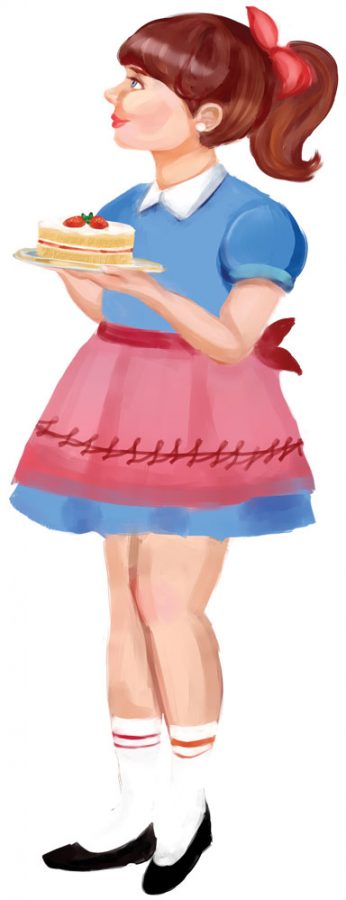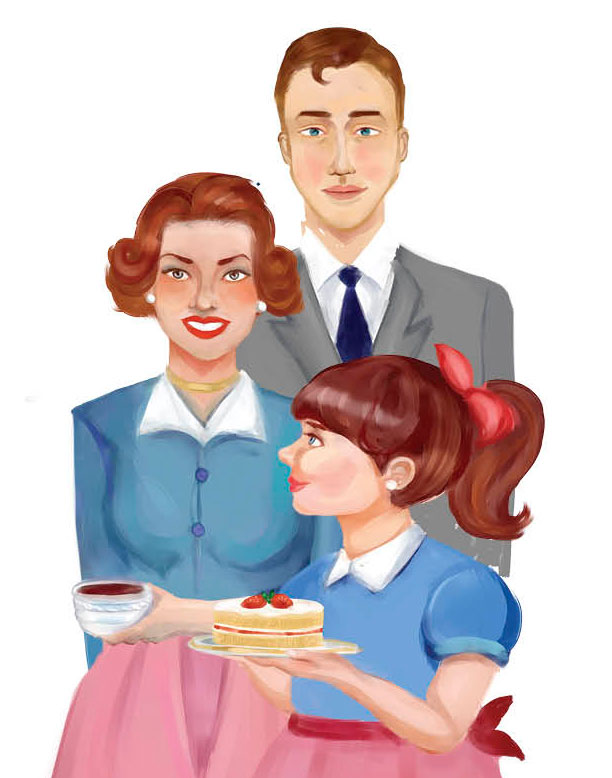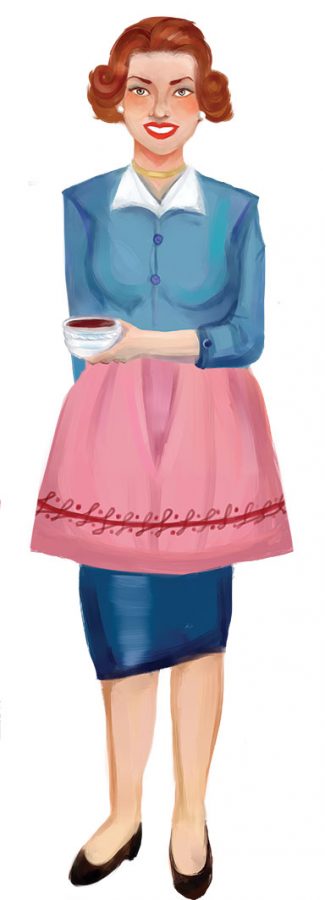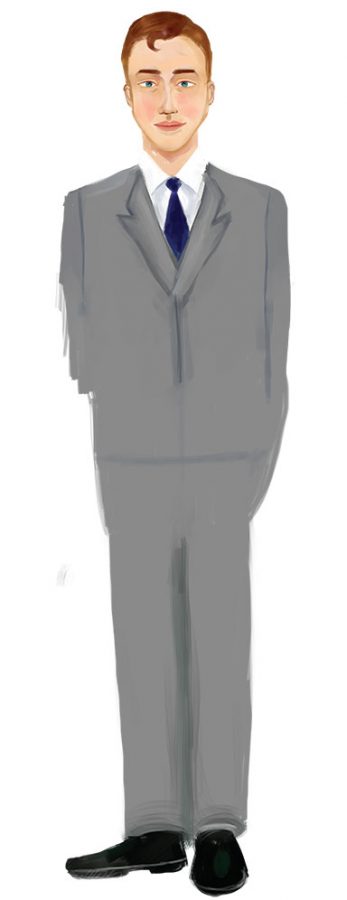When children reach the age of two years old, they begin to experience moral emotions, or feelings prompted by right and wrong, according to the American Psychological Association. As they continue through childhood and adolescence, their senses of righteousness fluctuate and alter to reflect their changing environment, though sometimes these moral transitions may be reluctant and strenuous, as humans are innately egocentric and selfish. In addition to this idea of individual morality development, American people have redefined their principles of conscience as a nation, as well.
When the United States was first established, it created the Articles of Confederation to set a basis of the country’s societal norms and political constructs citizens should abide by. These ideas were later overturned in the Constitution after the nation erupted in conflict and dispute over what they considered morally respectable. For instance, it was socially acceptable for a white person to own slaves, and women were not permitted to independently own property. As time passed and American values gradually shifted, like those of a child, to accommodate new concepts and perceptions, owning slaves became a violation of human rights, and women owning property became commonplace.
Despite the similarities of evolving morality between a child and the United States there are, of course, striking differences between the two. A kid is only one person with one set of experiences to draw upon, while the United States contains millions of people with contrasting experiences that shape their consciences disparately.
When it comes to talking about morals in American history, senior John Utley feels blanketing an entire nation of people with one standard of morals is wrong, as there’s no true way to include everyone’s thoughts and opinions.
“We do not all have the same morals because ‘American’ has never described a homogenous group of people. The citizens of America, from the very start, have consciously been of different ethnicities, political orientations, backgrounds and ways of life,” Utley said. “What changes morals is an attitude towards lifelong learning. What you take from your experiences, what you learn from history and the world around you, and how you are raised are all deciding factors, but morality has a much better chance of changing, or even being reinforced, if you are constantly looking to what wisdom is offered by your surroundings.”
[quote]What you take from your experiences, what you learn from history and the world around you, and how you are raised are all deciding factors, but morality has a much better chance of changing, or even being reinforced, if you are constantly looking to what wisdom is offered by your surroundings. -John Utley, senior[/quote]
The idea that external influences shape one’s moral composition mirrors Utley’s description. According to a report by The Scientific American, morality is an evolutionary concept based upon social interaction and group mentality. One best recognizes cues on how to behave based on what his or her moral community has practiced, whether that community be family, friends or others.
Gay marriage acceptance rate
2001 – 35%
2007 – 37%
2012 – 48%
2015 – 55%
2017 – 67%
As for individuals in the United States., the idea that members within one community share morals may seem absurd because every American is so culturally, politically and economically divergent. One connecting concept that all Americans typically share, Advanced Placement (AP) U.S. History teacher Chris Fischer pointed out, is the feeling that liberty is a standard and noble practice.
“I think [Americans] are very diverse. If you look at our uniqueness…freedom has always been part of this scaffolding at who we are. It’s always been in our DNA, regardless of your uniqueness and your own morality,” Fischer said. “You can look at groups that have done immoral things and done it under the banner of freedom, and you can look at victims who have fought for freedom. [Freedom] always been a characteristic of who we are. You can find some similarities, but I do think [morals] are probably different [for everyone].”
The simplest way for one to see that difference, Fischer reasoned, is comparing people’s morals today with those of generations past. He explained why what was morally right back then, such as slavery, is so obviously not now. He took an example of a poor, white farmer during the Antebellum period. The farmer would die for slavery because that was the institution he grew up on, what his community in the South believed in and if he defended it, it would be a righteous act.
Today, senior Alex Haffley does not believe protecting slavery is a righteous act. When putting that part of America’s past into perspective today, Haffley could not imagine ever protecting slavery, as he believes it’s unethical and inhumane. If he were alive back when slavery was morally acceptable nationwide, however, he could see how he, regrettably, would have contributed.
1212 former presidents owned slaves at some point in their lives until slavery was abolished in 1865
“As you likely know, it really was less than 10 percent of men that owned slaves in the south, with only one percent having a substantial amount. Assuming I had the capability and was raised in the South, where [slavery] was practiced, it is very possible that I, like anyone else, would have done it,” Haffley said. “This is a terribly hard question, as using today’s morals I would never participate in anything of the sort, but assuming I was raised in an environment in which it was commonplace and accepted, most people would.”
These thoughts on the moral history of slavery tie into two questions Fischer asks: how could an entire population believe oppressing a group of people was ethical and how their morals could be so messed up? Though it isn’t American history, Fischer answers these questions by looking at what happened in World War II with the Nazi Party in Germany.
“In my World War II class, I had kids read Christopher Brown’s ‘Ordinary Men,’ and it talks about how just average German teachers and shopkeepers, just normal people, could do what they did,” Fischer said. “Toward the tail-end of the war, they would take old, frumpy men like me and teachers that were not soldiers, and they would make them kill people. So how could [one’s] moral compass be that messed up? His argument was, it’s not just the propaganda that your country feeds you, it’s your group mentality. When we do things, we recalibrate our moral compass, at least upon our really close environment. You feel compelled to be a member of the community and reaffirm your own identity and maybe do things you wouldn’t have done before.”
One part of American history Fischer highlights as a significant time period of moral change is the ‘60s and ‘70s. The time period was a concoction of social revolutions, including civil rights struggles, an activist court and women’s rights, as well as the addition of an economic recession and the draft and controversy that came with the Vietnam War. With so many diverse and complex movements happening at once, Fischer said the decades were times of transforming the national moral compass, as people had to confront who they were in an age of upheaval and volatility.
27The United States Constitution has been amended 27 times in the past 200 years
For the civil rights movement specifically, Utley said the change in morals toward racial equality did not occur overnight. It wasn’t until after much turmoil, debate and the influence of the nation’s youth did any moral change occur.
“Prior to [the civil rights movement], it seemed that the overwhelming majority of the population was set on their morals and would not change. [The movement] did not cause an immediate moral change, but it forced people to at least tolerate what they did not believe in against the seeming impossibility,” Utley said. “That made it possible for things to change over time, and views have shifted to what civil rights advocates were supporting 60 years ago. Their words have become the norm, and being a racist will, in most places, cause you to be ostracized. [An entire population changing its moral construct] can seem insurmountable, but [the fight for] civil rights tells us it is not. The changing morals of a larger population come with a change in the attitude of the young people.”
Though both Utley and Fischer don’t see all Americans developing the same morals, they believe all Americans have individual conceptions of right and wrong reflecting their experiences and how they were raised. Those morals, however, are continuously changing to fit the contemporary environment that citizens inhabit.
“I would say that the historical context dictates or illustrates the uniqueness of our moral compass, and our moral compass and the history of our nation has been very different in times… So, what is the American identity and the American cartiture, and how do you look at the morality of it?” Fischer said. “I stand by the fact that we’ve always been moral, but I would also recognize that we’re a very heterogeneous society, a pluralistic society, that grows, struggles through conflict and, with that, your morals have to evolve.”





























































































